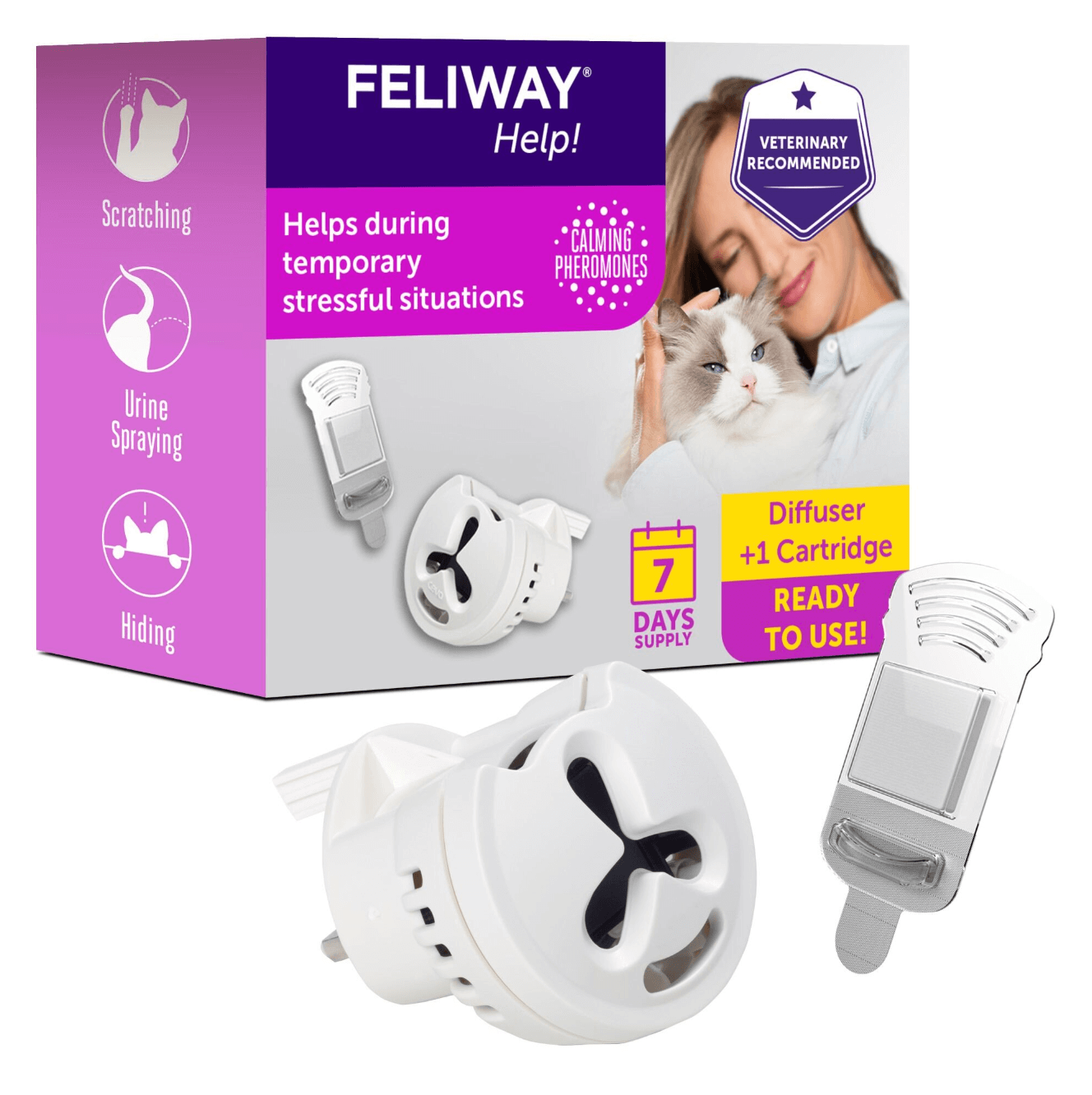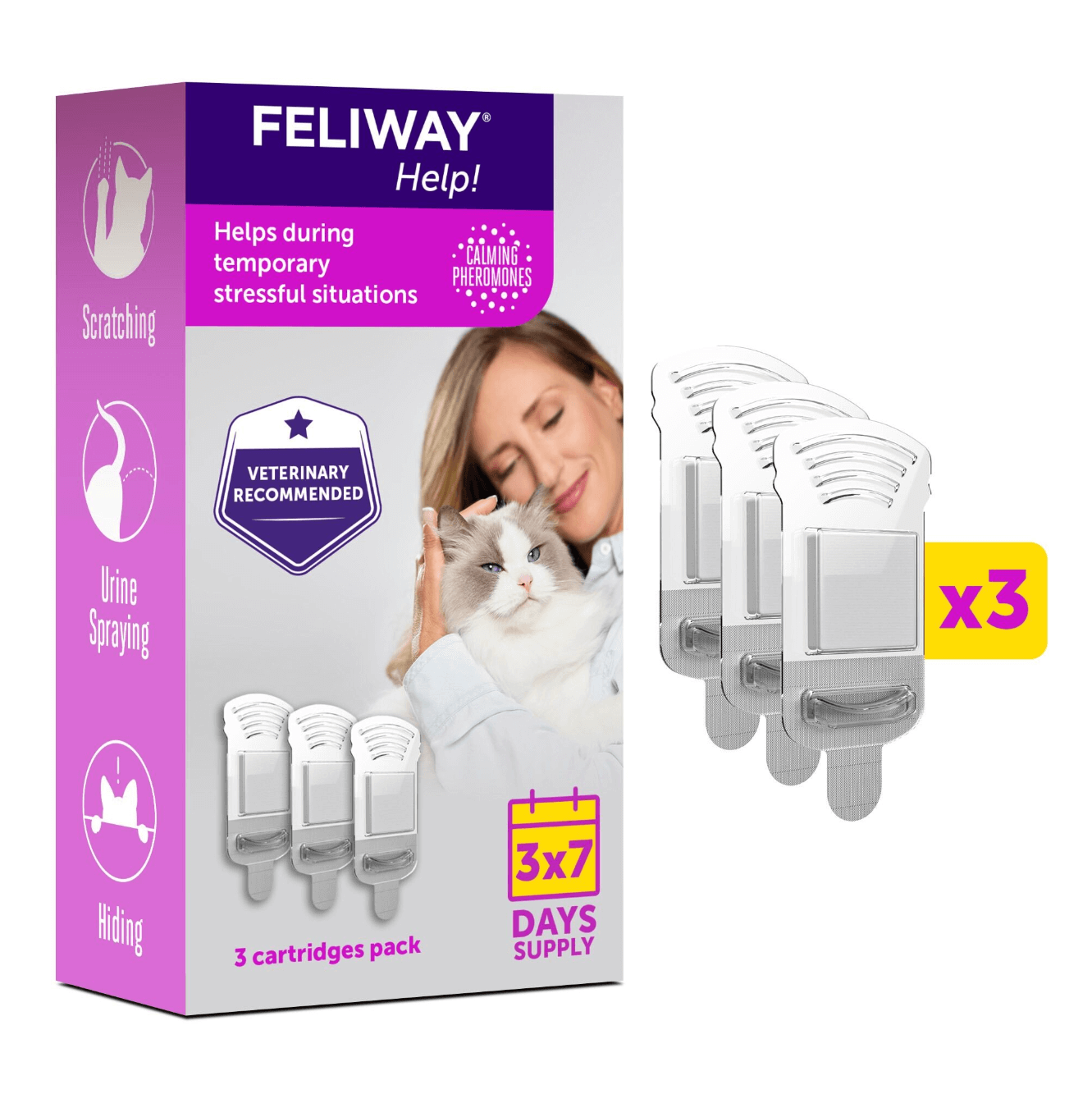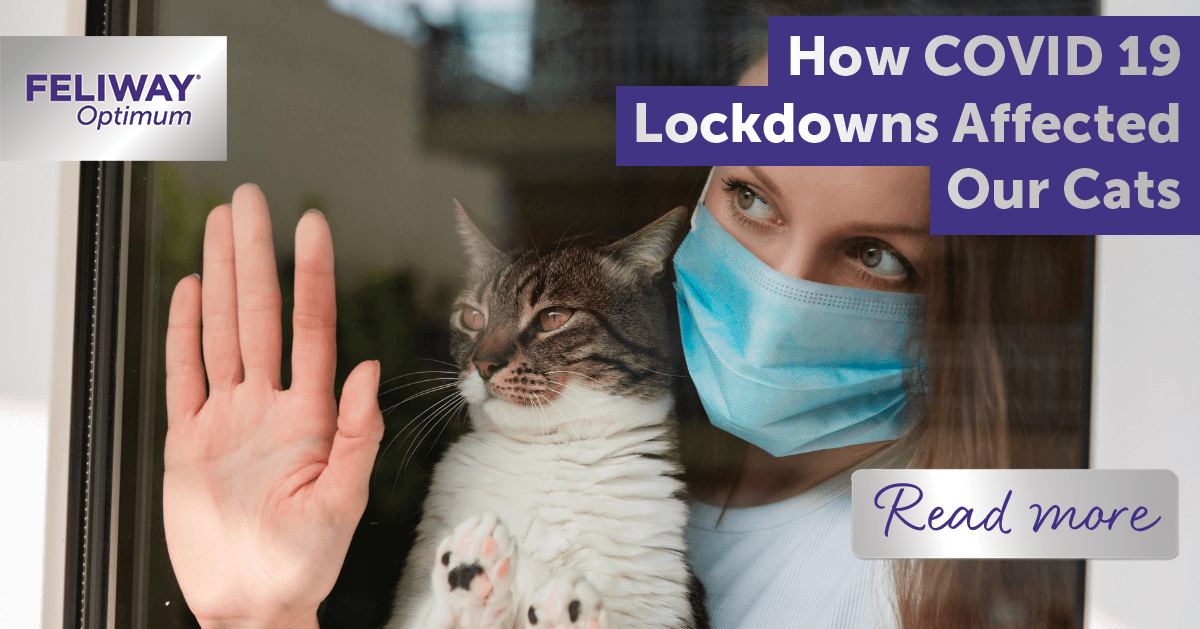
How COVID 19 Lockdown Affected Our Cats
Your feedback: In a few words...
From initial lockdown restrictions, to reopenings and adaptations, we've all faced a lot of change through 2020 and 2021. But it's not only humans who had to adjust - our feline friends have also had to adapt to a new way of life!
Spending more time with their humans, adapting to home improvements, and changes in routine don't always come easy to our feline friends. They are creatures of habit!
So how has the COVID-19 pandemic affected our cats?
To find out, FELIWAY conducted two surveys (in 2020 and 2021), exploring how owners felt their cats were coping during the pandemic. The first survey was conducted in April and May 2020 across cat lovers in France, Italy, Germany, Spain, the Netherlands and the USA. The second survey was conducted in May 2021, and included all of the countries above as well as the UK.
Lots of cat lovers took part in our surveys - there were 3,446 responses to the 2020 survey and 6,260 responses to the 2021 survey, with the majority of households including 2 people.
We'd like to thank all the participants who took part in our surveys for sharing their kitty insights with us!
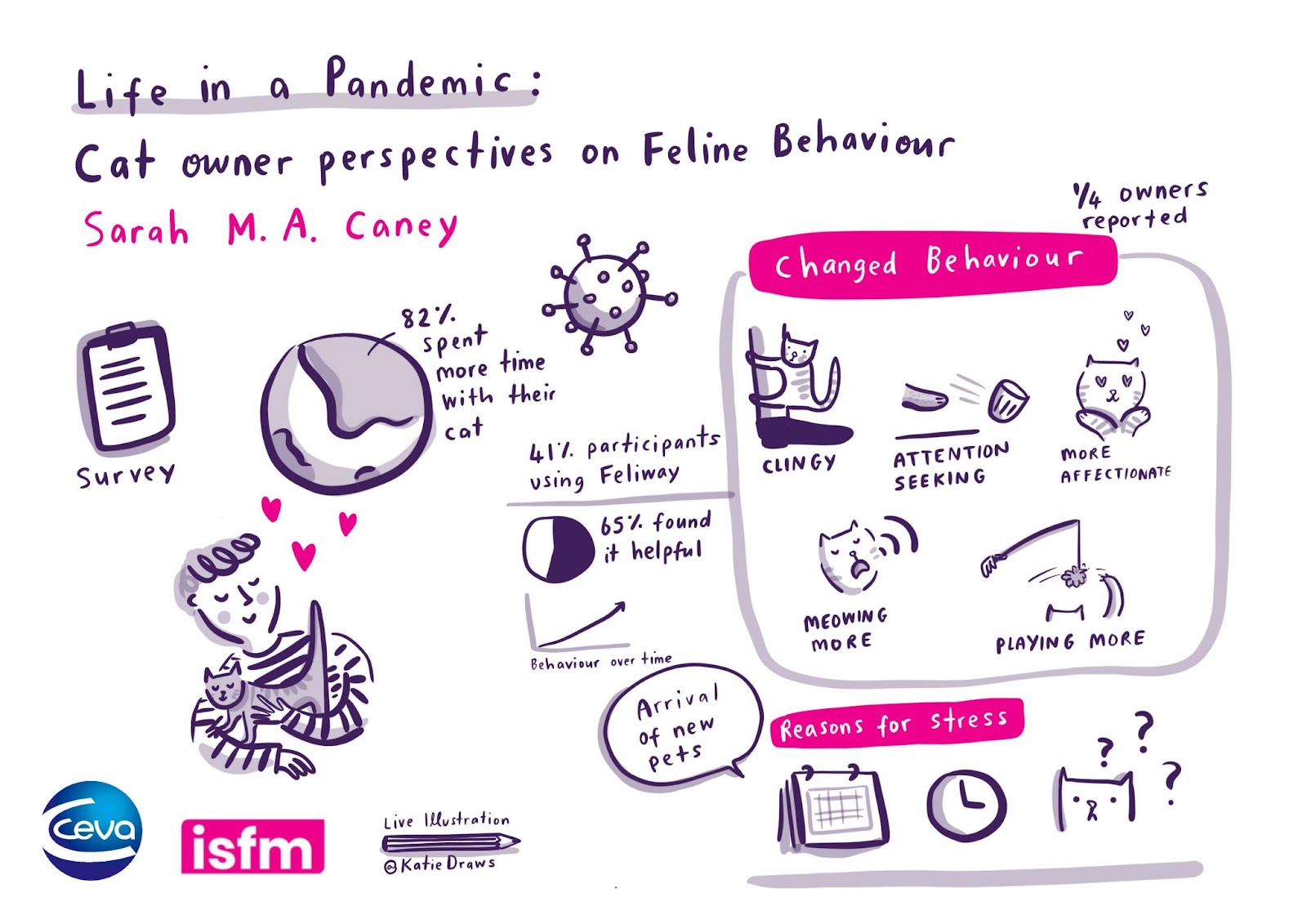
2021 Survey Findings
How have households changed?
The number of people in the home was similar across the countries surveyed, with the majority of households surveyed including 2 people. Quite a few households also decided to welcome a new furry friend into their family during the Covid19 pandemic situation - with 22% saying they'd welcomed a new pet. 87% answered that they got a cat during this period and 10% adopted a dog!
How has your relationship with your cat changed?
Due to national lockdowns and restrictions, many have found that they have spent more time with their cat(s) than ever before, with 82% of respondents to our 2020 survey stating that they spent more time with their cat - and 78% of respondents in 2021. In some countries, respondents felt that the time they spent with their kitties varied throughout the pandemic, due to varying restrictions at different times.
Respondents in Italy and Spain noted the most variation, while the UK and USA continued to spend similar amounts of time with their cats throughout this time.
How has the pandemic impacted your kitty?
The pandemic hasn't just been stressful for humans - it has impacted our four-pawed companions too!
In response to our 2020 survey, 14% of respondents said that the pandemic had probably been stressful for their cat(s), and 6% were sure that it has definitely been a stressor. However, it seems that kitties may have started adapting to having their humans at home more as, in response to our 2021 survey, just 6% thought it has probably been stressful for their feline companions and 4% felt it definitely had.
Both surveys showed that 10% of people surveyed weren't really sure if their kitty was feeling the impact of the pandemic situation or not. Do you know how your kitty is feeling if they flick their tail or start hiding? Check out our cat body language app to find out if you're a kitty expert and see if you can spot all 48 signs.
Perhaps understandably, cat parents felt that the most stressful impact of the pandemic on cats was the changing routines - if there's one thing cats don't like, it's change!
What could be making cats stressed?
We delved deeper into the ways changing routines can be stressful for kitties, asking respondents which factors they think made life stressful for their furry friends during the pandemic. In response to our 2021 survey, 44% of respondents felt that it was their own changing routine that had caused kitty stress, while 45% felt that it was the difference to their cat's routine. This was even higher in our 2020 survey closer to the start of the pandemic, where 74% felt that their changing routine was causing their cat to feel stressed.
Many kitty parents also felt that their cat was able to pick up on the stress that they were feeling - with 42% listing this as a factor in 2020 and 45% listing this as a factor in the 2021 survey. Other factors listed included:
- people being present at home all the time,
- too many people in the home,
- new pets in the home
- less space for your cat, and
- less access to the outside.
Are cats behaving differently?
Around ⅓ of kitty parents surveyed have seen a change in their kitty's behaviour since the start of the pandemic! In our 2021 survey, the UK and USA in particular had a high percentage of respondents answering "yes" to this question - 40% in the UK and 36% in the USA. Overall, 54% of respondents to the 2021 survey felt that the level of restrictions during the pandemic had an impact on their cat's behaviour or wellbeing.
Some of the more prominent changes that people noticed included,
- their cat becoming closer to them and their family - ‚"more clingy" - which was observed by 57% of respondents
- more attention seeking (50%)
- more affectionate (40%)
- had started meowing more (30%)
- become more playful (16%)
- or more anxious (18%)
Lower numbers of cat parents had also noticed that their kitty was grooming more, had become afraid of noises, was hiding, scratching furniture, or fighting more in multi-cat households - all signs that your kitty may not be completely happy.
We also asked if the duration of the pandemic has impacted cat's behaviour (i.e. got better or worse with time), to which:
- 40% across the countries surveyed suggested behaviour improved
- 18% suggested it had worsened
- 19% weren't sure, and
- 22% felt it hadn't had an impact
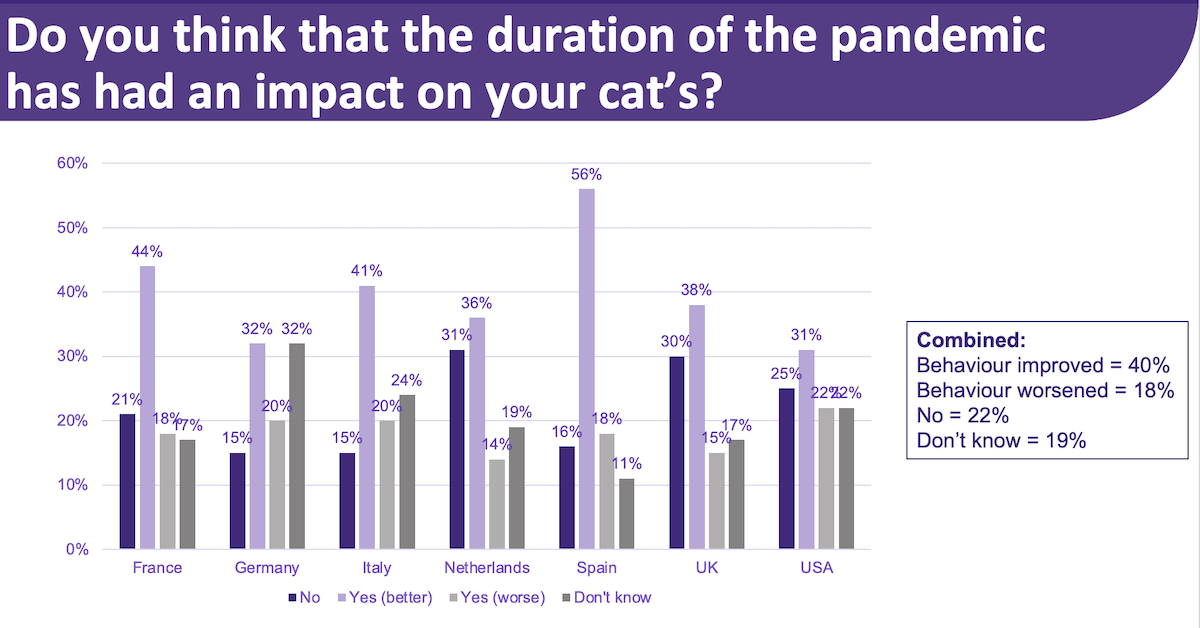
Unpacking the reasons for cat stress and what causes cat stress
During national lockdowns, working from home meant that it was easier to give more attention and food to feline friends, and have more time for play or cuddles - which explains why cats were more likely to become closer to their human family - being more "clingy" and affectionate.
However, this change to routine was also unsettling to some cats. Children spending more time at home with home-schooling also meant more noise and activity around the house, as well as less space in the home, which could cause kitty stress.
Then when restrictions were lifted slightly, and people were returning to the office at different times, cats have found it difficult to adapt after growing used to having lots of time with their human companions. People working in key industries such as hospitals or shops also faced increased workload and longer hours, meaning that their kitties also had a change of routine. As we mentioned earlier, many surveyed welcomed a new pet to their family which can also be a cause of anxiety for cats.
Did the use of FELIWAY change during the pandemic?
According to our survey, 27% of respondents used FELIWAY at home during the pandemic in 2020. This increased to 41% in 2021. The April/May 2020 survey showed that 50% of users had started using FELIWAY in the last month to provide comfort to their cats. However, our 2021 survey showed longer-term use, with 84% of users having used FELIWAY for 1 month or more - in fact, 32% of respondents had been using the FELIWAY for more than 6 months.
The most popular product across all countries surveyed was FELIWAY Classic (62% of respondents used this), followed by our newest product FELIWAY Optimum (28%), and FELIWAY Friends (25%).
17% of FELIWAY users also reported changing the FELIWAY product they used during the pandemic. Reasons for this included:
- adding a new cat or dog to the household
- increased cat stress, and
- the launch of FELIWAY Optimum which is our most complete solution for cat serenity and solves all kinds of cat stress.
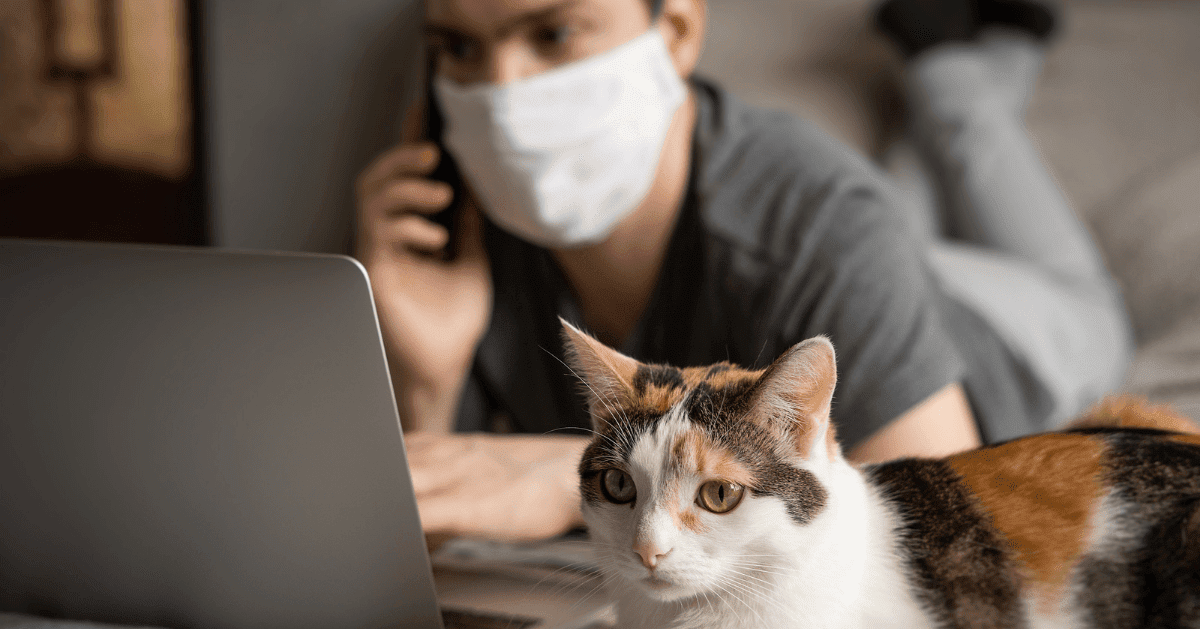
How are cat owners helping cats?
As well as 64% of respondents to our most recent survey stating that they felt FELIWAY use was probably or definitely helping their cat at home, kitty parents are trying to help their cats feel less stressed in several ways. 77% of respondents are using additional techniques to FELIWAY, such as spending time playing with their cat, buying new cat toys and puzzle feeders, increasing outdoor access, adding kitty resources to the home, and ensuring their cat has enough hiding places where they can retreat for some alone time.
Supporting Your Cat
In response to our 2020 survey, 24% of respondents felt that their relationship with their kitty had definitely improved as a result of the pandemic situation; the proportion of respondents who responded that their relationship had definitely improved was slightly higher in our 2021 survey, at 29%.
However, 25% of respondents to our most recent survey felt that the return to "normal" would 'probably or definitely' be difficult for their furry friend. To continue supporting their kitty, 47% will continue or start using FELIWAY, 51% will play with their cat more often, and 42% will try to be at home more often.
Being aware of how your kitty feels in response to change and ensuring that you can spot signs of cat stress so that you can take action, is key to keeping your cat calm and content. Read more about preparing your cat for end of lockdown and together, you can create the purrfect calm kitty home and build your bond!













